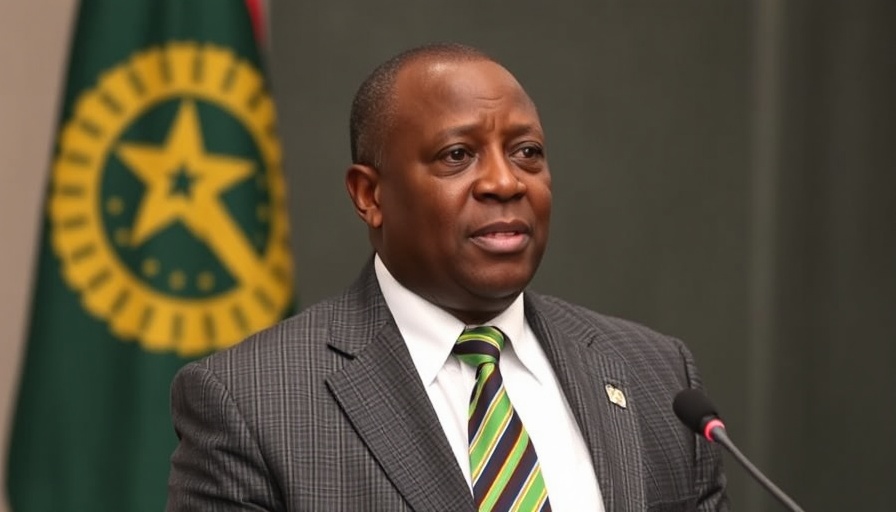
Angola's Quest for Peace in the DRC
Amid rising tensions in the Democratic Republic of Congo (DRC), Angolan President João Lourenço’s attempt to mediate peace shows both resilience and desperation. Angola's latest peace initiative, aimed at reconciling the Congolese government with the M23 rebels, recently hit a snag when negotiations fell through, with the rebel faction citing external pressure and a lack of sincere commitment from the government.
Why Angola Cares: A Geopolitical Perspective
Analysts assert that Angola's interest in a peaceful DRC is multidimensional. The two nations share a lengthy land border of 2,500 kilometers, which has historically influenced their political and economic landscapes. The Lobito Corridor, which promises enhanced trade routes through Angola to Zambia and the DRC, hangs in the balance and is contingent on achieving sustainable stability in the region. As João Gonçalves, an expert on African affairs, put it, both nations are intertwined not only by their geography but also by familial ties that transcend diplomacy.
The Human Cost of Conflict
The fallout from unrest in the DRC bears significant humanitarian implications for Angola. The presence of 57,000 refugees in Angola—many fleeing violence—highlights the interconnectedness of their fates. This historical intertwining is seen as something more than a mere diplomatic concern; it underscores survival, as the DRC once offered refuge to Angolans during times of civil strife. Such interdependence signals that chaos in one nation inevitably impacts the other.
Lourenço’s Courageous Leap
João Lourenço’s proactive stance, taking personal responsibility for mediating peace since 2017, reflects a leader willing to engage deeply with a neighboring crisis. While some may speculate about personal motives, his commitment to regional security is clear. Peace in the DRC is not just an aspiration for Angola—it is a necessity for its economic stability and national security.
Looking Ahead: What’s Next for Angola and the DRC?
The complexities of foreign relations in Africa make predicting outcomes challenging. However, one thing is certain: Angola’s continued involvement in peace negotiations could define not only its diplomatic landscape but also influence broader geopolitical themes in Africa. Stakeholders are urged to consider how the DRC situation evolves, as the stakes are high for regional progress.
With an eye on future opportunities and challenges, policymakers and investors alike should keep abreast of developments in Angolan mediation efforts and their implications for peace and prosperity in the region.
 Add Row
Add Row  Add
Add 


 Add Row
Add Row  Add
Add 

Write A Comment